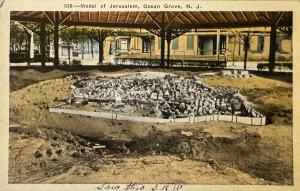 TORONTO — In July of 1943, while in a work camp, Sally Eisner thought the world was going to end. The skies were filled with lightening and thunder, and the air was thick with the sound of gunshots.
TORONTO — In July of 1943, while in a work camp, Sally Eisner thought the world was going to end. The skies were filled with lightening and thunder, and the air was thick with the sound of gunshots.
Generations meet at the dinner of miracles, from left, Jeremy Pilarski, Marc Cohen, Lauri Cohen, Gabi Krug, Lenka Weksberg, Warren Krug and Romy Pilarski.
Generations meet at the dinner of miracles, from left, Jeremy
Pilarski, Marc Cohen, Lauri Cohen, Gabi Krug, Lenka Weksberg, Warren
Krug and Romy Pilarski.
TORONTO — In
July of 1943, while in a work camp, Sally Eisner thought the world was
going to end. The skies were filled with lightening and thunder, and
the air was thick with the sound of gunshots.
Eisner, confused and scared, had no way of knowing that her parents had just been stripped down, told to stand in a line and shot by a group of Nazis.
This was the saddest day of her life. And last week, over a dinner of soup and chicken, she shared it with a group of young Jews.
Eisner, born in Poland, was one of about 70 Holocaust survivors to speak to approximately 450 young Jewish professionals at the fifth annual dinner of miracles. The dinner was sponsored by the Canadian Society for Yad Vashem and the Azrieli Foundation, two organizations that promote Holocaust education and commemoration.
The event allowed young Jews to dine with Holocaust survivors and hear their stories first-hand.
For Shawna Samuel, the dinner’s co-chair, the night was not about food. It was about dialogue.
“We really want to be honouring the survivors and their stories… when you’re able to have that one-on-one conversation… I think it puts the face to the story,” she said.
Samuel and co-chair Sherri Rotstein started the dinner five years ago, after finding out that many of their friends had never heard first-hand stories from survivors. This year, the dinner was so popular that people had to be turned away.
“Over 500 wanted to come,” Samuel said. “I really do think that people are realizing that it’s a race against time at this point. If they want to hear these survivors, it’s really now or never.”
During the event, Naomi Azrieli, chair of the Azrieli Foundation, spoke about the importance of active listening and the danger of silence.
“One can not help but be struck by how powerful the act of listening can be. The most important thing we can do is listen. And then we ask questions,” she said, adding that, after the war, survivors did not share their stories because “many people did not want to listen.”
While this silence has been broken, the Jewish community is facing a new problem, Azrieli said.
“Many [survivors] are no longer with us. As the years pass, there will simply be no eye witnesses,” she said. “We are almost there. And this silence can never be broken.”
For Hali Ahlfeld, 30, the dinner was an important reminder.
“It’s so easy to get caught up in your own life,” she said. “To [remember] how blessed we are – this just helps to remind us of that,” she said.







